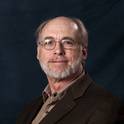
Article
Theoretical and Formal Continuity in James Tenney's Music
Contemporary Music Review
(2008)
Abstract
James Tenney created much of his music and theoretical writing as an objective experimenter, observer and codifier. This article examines Tenney's traits of curiosity, experimentation and honest self-evaluation through a subset of his compositions from the 1960s, 1970s and 1980s. Although quite diverse in many ways, these compositions share his mark of intense individuality, integrity and compositional rigor, which creates a macro-unity and formal continuity between works. Perhaps this is his ultimate ‘clang’ and conceptual ‘temporal gestalt-unit’. Each composition grows out of the need to address one or more specific formal questions: each work is indeed an experiment designed to explore the inherent ramifications of a theory, and subsequent compositions address questions generated by earlier works. Reclaiming the term ‘theorist’ in the proper sense within music, James Tenney designed and refined theories that required his compositions to prove or disprove them. In this way, each composition is linked to the next, and this continuous exploration established the large-scale formal and philosophical continuity of his creative life.
Keywords
- Formal Structure,
- Process Composition,
- Aural Perception,
- Experimental Music,
- Theory and Practice
Disciplines
Publication Date
2008
Citation Information
Brian Belet. "Theoretical and Formal Continuity in James Tenney's Music" Contemporary Music Review Vol. 27 Iss. 1 (2008) Available at: http://works.bepress.com/brian_belet/5/

This is an Author's Accepted Manuscript of an article whose final and definitive form, the Version of Record, has been published in Contemporary Music Review, 2008. Find the published version of this article at this link.
SJSU users: use the following link to login and access the article via SJSU databases.